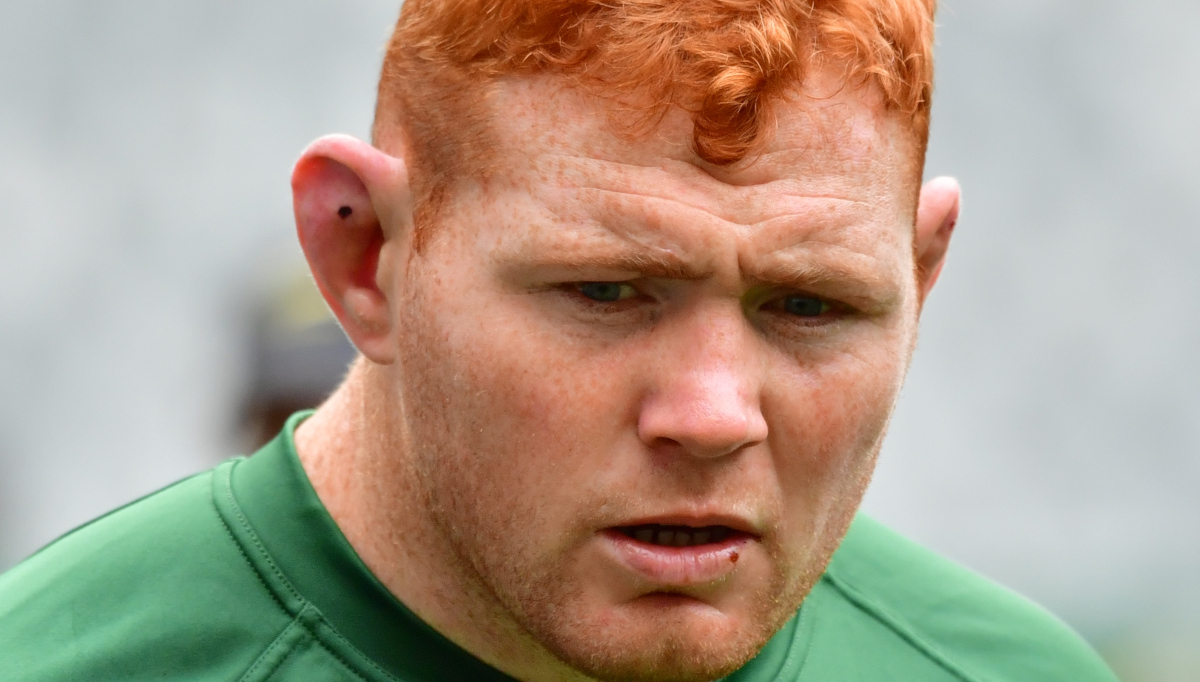
Exclusive: Springboks Prop Steven Kitshoff Felt Pressured to Join Lawsuit Despite Second Scan Showing No Signs of Brain Damage
In an exclusive revelation that has stunned the rugby world, Springboks prop Steven Kitshoff has come forward to share his experience of feeling pressured to join a lawsuit concerning brain damage, despite a second medical scan showing no signs of long-term injury. Kitshoff, known for his dedication and resilience on the field, has opened up about the challenges he faced during a time when the sport’s handling of player welfare and concussion-related issues was under intense scrutiny.
This new development casts light on the complex and often uncomfortable intersection of player health, legal battles, and the pressure to conform within professional rugby. Kitshoff’s candid admission raises important questions about the decision-making processes that influence players when faced with lawsuits tied to their careers and health, particularly when the evidence isn’t clear-cut.
The Pressure to Conform
Kitshoff, who has been a mainstay in the Springbok forward pack, shared that he was encouraged to join a high-profile class-action lawsuit that aimed to seek compensation for players allegedly suffering from long-term brain damage. However, despite undergoing two separate medical assessments, the second scan returned with reassuring results, showing no signs of permanent brain injury or damage.
In an interview, Kitshoff explained the difficult position he found himself in. “There was a lot of pressure from various sources to be a part of the lawsuit, even though the medical evidence didn’t support it,” Kitshoff revealed. “I was told that it could help raise awareness and make a difference for future players, but ultimately, I had to trust my own body and my doctors. The second scan gave me peace of mind, and I didn’t feel that I should be involved in something that didn’t align with my situation.”
The Lawsuit Debate
The ongoing legal battle involving former rugby players claiming brain damage due to repeated concussions has been a hot topic for years. High-profile cases have shed light on the potential long-term effects of head injuries in rugby and other contact sports. With many players experiencing memory loss, early onset dementia, and other neurological issues, the pressure to participate in lawsuits has intensified as part of the wider movement to hold rugby’s governing bodies accountable for player safety.
Kitshoff’s reluctance to join the lawsuit, despite the significant media attention and public support it garnered, highlights the complex nature of these decisions for current players. While the concerns surrounding concussion and brain damage are valid, Kitshoff’s case suggests that not all players may share the same experience, and the narrative around concussion-related lawsuits may not always reflect the individual realities of every athlete involved.
A Personal Decision
For Kitshoff, the decision was deeply personal. “I had to make a choice that was right for me and my future,” he said. “I understand why players who have suffered are looking for justice, but I have to be honest with myself about my health, and the second scan gave me a sense of clarity. I can’t make a decision based on what others think or what might be the right thing to do in the eyes of the public.”
While the broader issue of player safety remains urgent, Kitshoff’s decision underscores the importance of individualized care and attention. It is a reminder that not all athletes are dealing with the same circumstances, and it is crucial to listen to the voices of those who may not fit the mold of what is expected in the conversation around concussion and long-term damage.
The Road Ahead for Rugby
As rugby continues to grapple with the growing concern over player health, Kitshoff’s experience provides an important perspective on the pressures athletes face both on and off the field. While lawsuits may be one avenue for holding rugby organizations accountable, the ongoing challenge lies in ensuring that players receive the proper medical care, protection, and support they deserve, particularly when it comes to injuries that could affect their futures.
This incident also highlights the need for more transparent communication between players, medical professionals, and governing bodies, as well as the importance of respecting a player’s autonomy in making decisions about their own health. Rugby must adapt to the evolving landscape of player welfare, ensuring that it continues to prioritize the long-term well-being of its athletes, both during and after their careers.
Conclusion
Kitshoff’s candid revelation is a sobering reminder of the challenges facing professional athletes today, as they navigate the pressures of maintaining peak performance while safeguarding their health. As his story unfolds, it is clear that the conversation surrounding concussion, brain injury, and player welfare in rugby will continue to evolve—hopefully toward a more balanced approach that ensures both justice and fairness for all players, regardless of their individual circumstances.
Stay tuned as we continue to follow this developing story, offering more insights into the intersection of health, law, and rugby’s future.
Leave a Reply